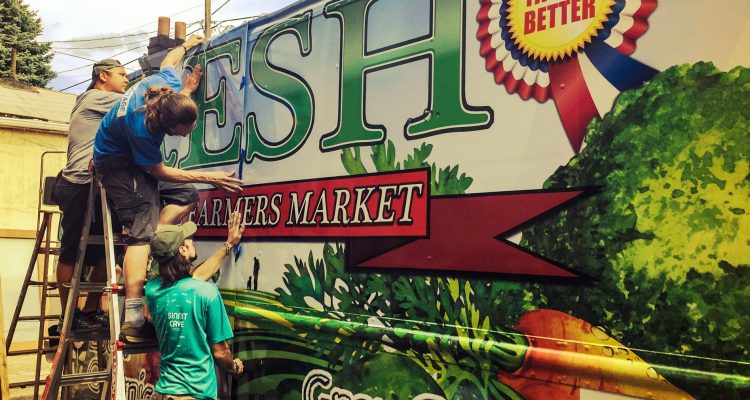The people of Wheeling got lucky one day four and a half years ago.
That’s when Ken Peralta made a few decisions that significantly changed his life as well as improved the quality of life for many in the Friendly City community.
He wanted to work with food in some way that would improve health – his own yes, but also the well-being of the young and old alike. Peralta took a look around and counted friends and allies and then packed up his belongings and landed in East Wheeling.
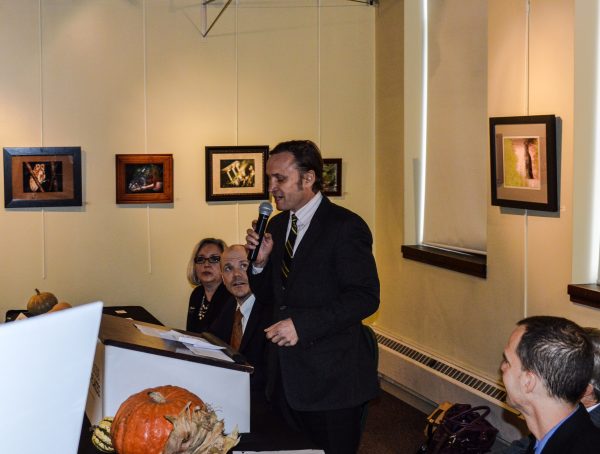
Peralta was raised in Phoenix, AZ and earned a bachelor’s degree in industrial engineering from the University of Arizona in 1988. He jumped to the East Coast to attend the Harvard Business School to acquire his MBA in 1994. Brooklyn, NY was home for almost a decade before arriving at a new place he previously had only heard about.
Today, Peralta is the executive director and co-founder of Grow Ohio Valley, a non-profit organization that grows and sells locally grown foods and fruits. He and co-founder Danny Swan joined forces with several other interested folks, and now they assist a troupe of full-time employees and volunteers to fill the demand that’s been realized throughout the Northern Panhandle and East Ohio areas.
People like to eat in the Upper Ohio Valley, and thanks to massive corporate consolidation in our food systems, and what is referred to as “food deserts,” we have not been consuming in the healthiest manner, he says, for too many years. That is why the mission of those involved with Grow Ohio Valley is to provoke economic development and social transformation through healthy foods and fruits.
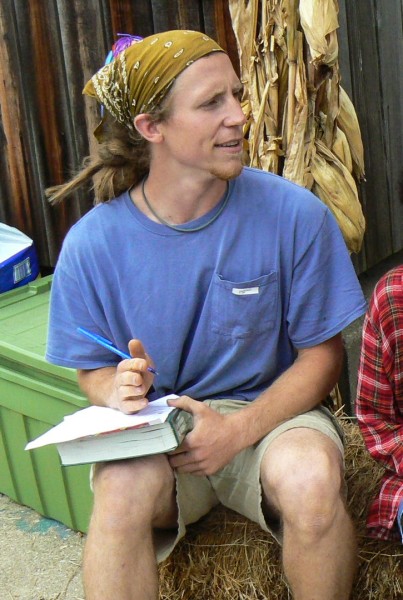
Peralta insists it is that simple.
His job, though, is not as easy as it may sound. In fact, when I met with Ken to have the following question-and-answer session, he carried with him an odd, unassuming metal box. It could have been a computer’s hard drive; it could have been the innards of a video-game system.
What it was, though, was a truck part that had something to do with the transmission of their new mobile market. The vehicle has been transformed during the past several months by many different individuals, and now the food truck features cupboards and refrigerators and a service window.
But the wheels have to roll, and Peralta is not afraid to get his hands dirty when necessary.
Novotney: Why Wheeling?
Peralta: It happened through of a confluence of events. I was in process of changing apartments in New York, and I was worn from living there for a decade, and I had a couple of friends who lived here. And then another friend became ill, and it made sense for him to get the care he needed here in Wheeling.
Things lined up for me, and I had to move somewhere. I wanted to do something involving food, and I thought I could get involved with something like that here.
Novotney: How did your involvement begin with Grow Ohio Valley?
Peralta: When I arrived in Wheeling, there were a few groups of people already doing some things involving gardening food production, and Danny Swan was involved with one of those groups. There were also some folks at the West Virginia Northern Community College Foundation who wrote and were awarded a grant from the Benedum Foundation to conduct an area-wide food study. That’s how I first got involved.
Because I have business and consulting experiences in my background, I was a good match for the project, and I became one of four people who worked on it. Grow Ohio Valley, in part, grew out this, in combination with the foundation Danny and other people had established. One of the recommendations that came out of that study was to establish a non-profit to be a public face and to consolidate resources to grow a robust local food economy here in Wheeling.
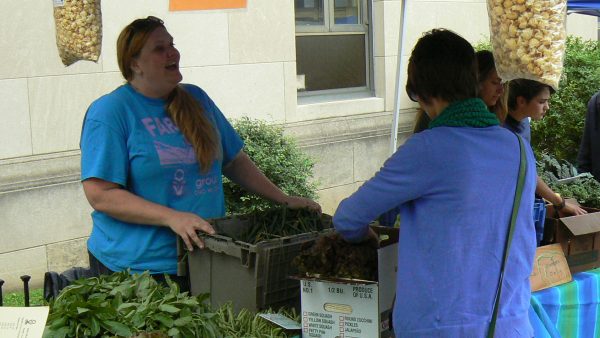
Novotney: Tell me about “food deserts.”
Peralta: Simply put, food deserts are areas that don’t have easily accessible grocery stores, so that people can’t readily access healthy foods. Lots of research has been conducted on this topic. One series of studies in Chicago introduced a unit of measure called “years of death added.” This research concluded that if you live in a food desert that has a convenience-type store, twice as many years of death were added, versus living in a food desert with no convenience-type store.
It’s an old story, and we are not the ones telling it for the first time, but a lot of the calories consumed in our modern convenience-obsessed diets are empty calories. They fill you up, fuel you for a short period, and then burn out. To make food “convenient,” it’s usually heavily processed and often laden with preservatives to extend its shelf-life. Obviously fresh fruits and vegetables are more volatile, and convenience-oriented stores aren’t well equipped to carry them.
The Upper Ohio Valley is filled with food deserts because many grocery stores have closed. Also with an aged population, and limited transportation options, many people are unable to get to the grocery stores we do have. It can be pretty difficult to get healthy food here.
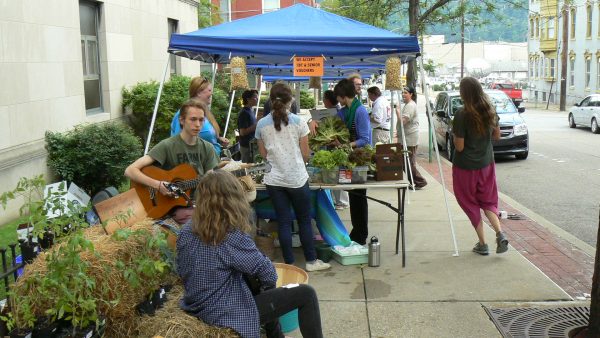
Novotney: Why is Ken Peralta working in the food business?
Peralta: At one point in my life I felt personally responsible to do something to preserve human prerogatives. I feel fortunate in that I’ve seen lots of different things, and I’ve done many different things, and I just felt like I should apply myself to help remedy the underlying crisis building in our food systems. Now some years later, I’ve grown to realize this isn’t my personal responsibility, but I’m having a lot of fun, and it seems like meaningful service to my community. I think what we are doing here could apply to other communities. The framework that we’re developing could be applied to improve other communities, and I’m excited to see where it goes.
Novotney: What exactly does the executive director of Grow Ohio Valley do?
Peralta: Fundraising is a big part of it. Organizing and managing is part of it. Establishing business strategies and deciding how to apply our resources is part of the position too.
This year we staffed-up on the operations-side of the non-profit with hope I could focus more on looking ahead and acquiring resources to get where we need to go. The job involves a little bit of everything, from building things and dealing with mechanics to lot of yes and no’s. And maybe’s when appropriate.
Novotney: Is Grow Ohio Valley completely constructed at this point?
Peralta: No. We’ve only scratched the surface with what we’ve done so far, and we’ve established good interest in what we are doing. There is a burgeoning demand for locally grown food, and we know there is not an abundant supply in our region.
Many, many farmers in our region have gotten out of the game, but there are still several talented farmers in this area, and they know a hell of a lot more about farming than I do. I do know that the demand outpaces supply at this point, and we also know that there are giant risks concerning our food system that’s been consolidating over several decades, and there are structural problems that need addressed to shift a bigger slice of the pie to local farmers.
We have laid a framework, but it’s just a beginning. I think the orchard is a great project, and the meadow area is going to be a great public place that will grow awareness in the area. More than anything those projects are going to help people realize the possibilities for an empty, fallow field, and how it can be used to better a community overall.
Novotney: Grow Ohio Valley has expanded from last year to this year.
Peralta: Yes. Our mobile market program has grown and is operating five days per week this year. We’re excited about this because it allows us to take fresh, local food to the people who need it the most and otherwise might not have access. We really hope people will come out and support this initiative.
And our CSA Program (Community Supported Agriculture) has become more popular this year. We also continue to operate an extended farm stand in East Wheeling every Wednesday. Our opening day sales eclipsed our best day from last year.
We think we have something here.
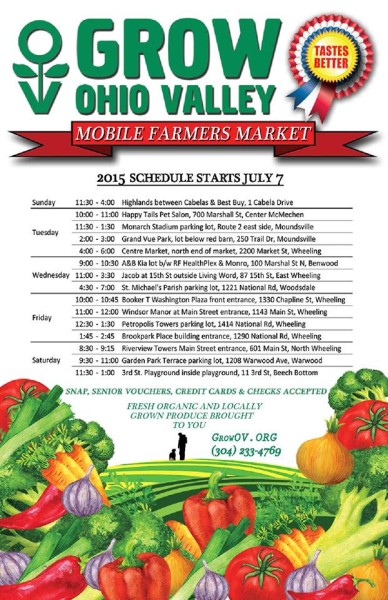
Novotney: What does the future like look for Grow Ohio Valley?
Peralta: Time will tell; that’s for sure, but I’d love to see expanded production involving both our organization and with other farmers, and I would also like to see the number of sales outlets grow. The mobile market will have a five-day-a-week schedule this year, but I would like to see it run seven days a week with two shifts.
We would love to sell locally grown foods to local school systems, and we have a great relationship with Catholic Charities, so we’ll be a doing a weekly order for them. It would be great if we could do the same for the other social service agencies that we have here in the Valley. It would be great if those agencies didn’t have to open cans to prepare meals.
Novotney: How have the partnerships with several federal agencies assisted Grown Ohio Valley since early December?
Peralta: We were one of the recipients of the “Local Foods, Local Places” grant, and that has provided some great technical assistance. Those resources have helped a great deal with the planning of the orchard and meadow projects as far as grading those hillsides and working on issues like storm water runoff.
We have also won a grant through the West Virginia Department of Agriculture that will help purchase the trees for the orchard and some of other things we’ll need for that project.
We were also awarded a grant to plant an Americorps program, so those are federal funds that will be used to have 10 full-time college students that want to have an experience in what we are doing. I’m a big believer in that program. A lot of people who are now here in Wheeling have participated in that program here, and they have chosen to stay here.
I think Wheeling is that kind of place. Once they get here, they realize that Wheeling is kind of quirky and pretty neat, so I am hoping that will draw a good group, and maybe some of those people will remain and take on leadership positions in the future.
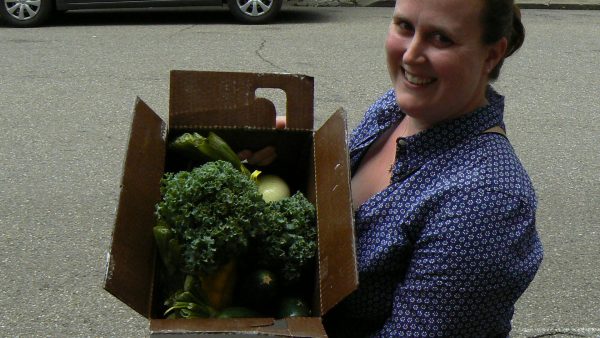
Novotney: Grow Ohio Valley has become very active in the local school system, but if you teach everyone how to garden, will that not diminish demand in the future?
Peralta: That would be great! Of course, Kacey (Orr) would have a conniption if she heard me say this, but if more farmers farm, and if more people would grow gardens to the point that we didn’t have to sell food, that would be a great thing.
But I don’t see that happening. We consume a lot of food in the Valley. Getting kids involved with gardening early could help to grow the dwindled base of farmers in our region. At a minimum, it encourages them to make healthy food choices by understanding the relationship between what they eat and how they feel and perform. Our long-term focus is to help facilitate hundreds of acres of food being grown local to our region, and to facilitate the cottage industries that would form around that. This would really change the face of this place in a beneficial way. We have an opportunity to push economic development and social transformation throughout the Valley with local food.
Novotney: How long will you be involved with Grow Ohio Valley?
Peralta: As long as Grow Ohio Valley needs me, I’d love to remain involved. But once things are established and programs are on their way, I don’t think it will need me. I would stay involved, but will I be the executive director for the next 20 years? I hope not. I’d love to see an energetic and passionate person come in down the road to lead this charge.


